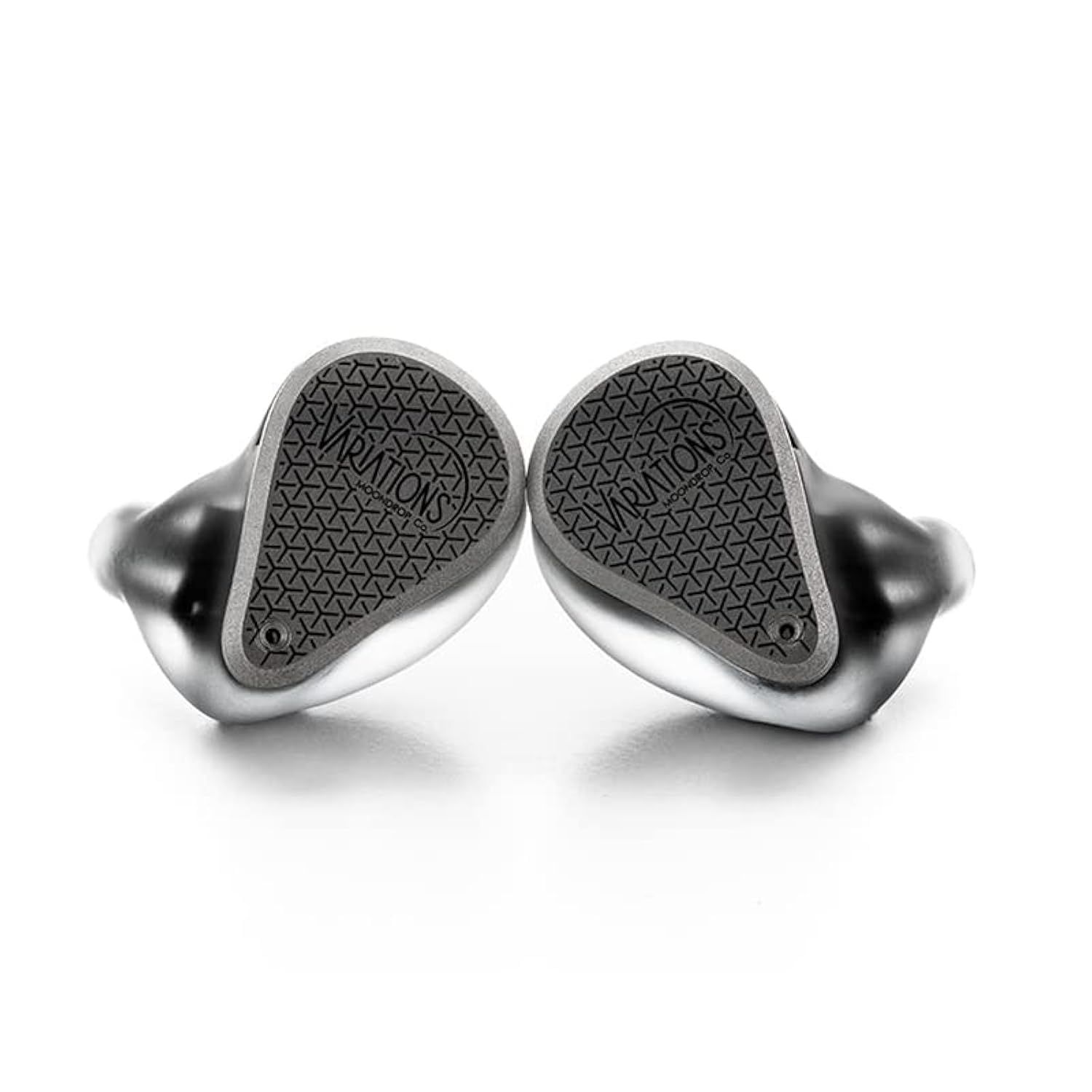Katovs.Variations
Sound & Specs Comparison
Information
Both IEMs are widely regarded in the audiophile community. See how they differ in terms of sub-bass response, upper mids, clarity, and overall tonality. Spider charts and rating breakdowns included.
Objective Comparison
Facts, details, stuff.
| General Info | Kato | Variations |
|---|---|---|
| Brand | Moondrop | Moondrop |
| Country | China | China |
| IEM Description | – | Moondrop Variations is a hybrid in-ear monitor combining electrostatic, balanced armature, and dynamic drivers for a precise and immersive listening experience. Known for its balanced, reference-style tuning with tight bass, clean mids, and extended treble, it’s a favorite among audiophiles who crave clarity and technical performance. Ideal for detail lovers and those seeking a high-fidelity sound signature. |
| Price Level | 100 – 500 | 500 – 1.000 |
| Housing & Driver | ||
|---|---|---|
| Driver Config | Single Dyn. Driver | Tribrid |
| Driver Types | Dynamic Driver | Dynamic Driver + Balanced Armature + Electrostatic |
| Shell Material | – | Copper |
| Cable | – | – |
| Technical | ||
|---|---|---|
| Freq Range | – | 9-40,000 Hz |
| Impedance (Ω) | – | – |
| Sensitivity (dB) | – | – |
| Crossover | – | – |
| Platform Info | ||
|---|---|---|
| Comments | 0 | 1 |
| Visit Count | 21 | 69 |
| External Reviews | 0 | 3 |
Meta Ratings
Compared to Kato, Variations creates a markedly wider and deeper soundstage, giving each instrument more space and depth. For comfort fit, It performs substantially better (7 vs 4.5). Kato shows slightly superior build quality than Variations (7 vs 6.5), indicating better materials, construction precision, and overall durability. Users may find the It cable faintly more confidence-inspiring for both daily use and long-term durability. Regarding included accessories, It offers a faintly more complete and useful package, which may include additional tips, a better case, or enhanced extras.
| Kato | Variations | |
|---|---|---|
| Sound | 5.0 | 6.5 |
| Comfort Fit | 4.5 | 7.0 |
| Build Quality | 7.0 | 6.5 |
| Stock Cable | 6.0 | 5.5 |
| Accessories | 6.5 | 6.0 |
Sound Characteristics
Low-frequency extension on Variations feels n more natural and authoritative, while Kato lacks some reach (6.5 vs 3). It renders bass with n greater punch and separation, where Kato sometimes feels bloated (6.5 vs 4). It translates bass vibrations into a overwhelmingly more visceral experience, while Kato lacks this tactile feedback (8.5 vs 3). It renders lower mids n more naturally, giving male vocals and instruments a fuller tone than Kato (7.5 vs 4). It strikes a overwhelmingly better balance between presence and smoothness in the upper mids compared to Kato (8 vs 4). The treble on It is c more nuanced and refined, especially when it comes to cymbals and ambient elements (7.5 vs 5). The upper treble of It extends s further, offering more sparkle and openness than Kato (8 vs 5). The stereo field on It feels a wider and more holographic, whereas Kato sounds more intimate (7.5 vs 4). It retrieves micro-details overwhelmingly more effectively, revealing nuances that are less apparent in Kato (8 vs 4). It organizes musical elements s better across depth, enhancing spatial realism over Kato (7 vs 4.5). It keeps competing frequencies under control n more effectively, reducing sonic congestion compared to Kato (7 vs 4). Notes on It feel overwhelmingly more grounded and weighty, whereas Kato can sound thin or hollow (8 vs 2). It delivers dynamic shifts with overwhelmingly greater impact, making Kato sound comparatively tame (8.5 vs 2). It handles sibilant sounds overwhelmingly more gently, with fewer peaks and less sharpness than Kato (9 vs 4). Timbre on It sounds c more realistic and natural, whereas Kato feels slightly more artificial or colored (7.5 vs 5). It achieves a better tonal neutrality, avoiding colorations present in Kato (7 vs 5). It renders texture n more precisely, making instrument surfaces and vocal grain more palpable than Kato (7.5 vs 5).
| Kato | Variations | |
|---|---|---|
| Sub Bass | 3.0 | 6.5 |
| Bass | 4.0 | 6.5 |
| Bass Feel | 3.0 | 8.5 |
| Lower Mids | 4.0 | 7.5 |
| Upper Mids | 4.0 | 8.0 |
| Lower Treble | 5.0 | 7.5 |
| Upper Treble | 5.0 | 8.0 |
| Sound Stage Width | 4.0 | 7.5 |
| Detail | 4.0 | 8.0 |
| Layering | 4.5 | 7.0 |
| Masking | 4.0 | 7.0 |
| Note Weight | 2.0 | 8.0 |
| Slam | 2.0 | 8.5 |
| Sibilance | 4.0 | 9.0 |
| Timbre Color | 5.0 | 7.5 |
| Tonality | 5.0 | 7.0 |
| Texture | 5.0 | 7.5 |
Tonal Signature
// Nothing to compare yet.

